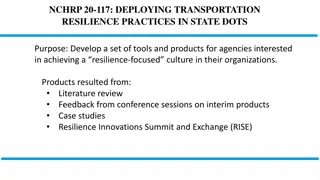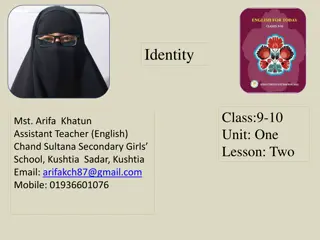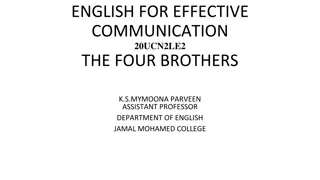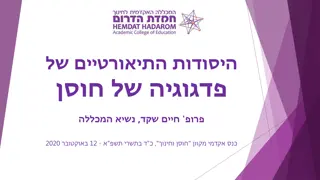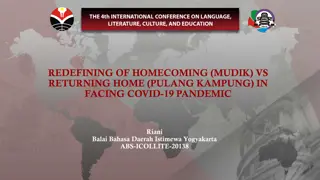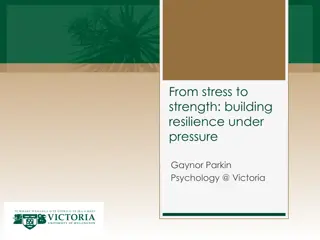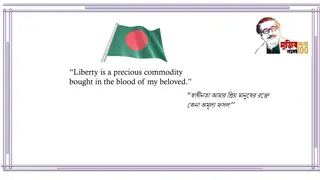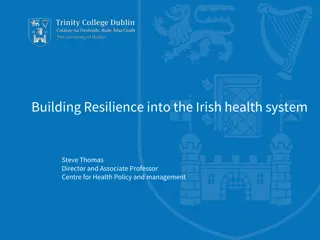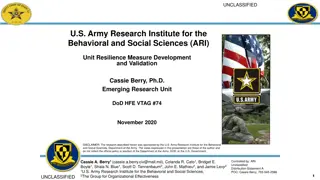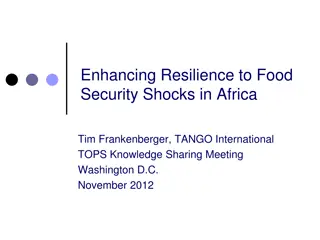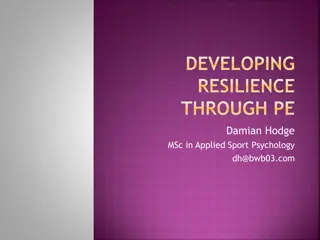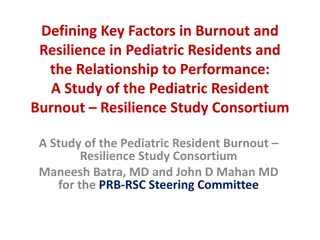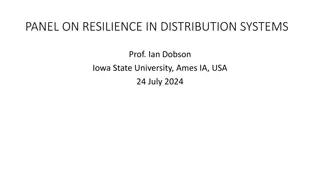The Tale of Homecoming: Bangabandhu's Triumph and Resilience
Bangabandhu Sheikh Mujibur Rahman's fearless journey from imprisonment to triumphant homecoming, symbolizing the indomitable spirit of Bangalees for independence, narrated with grandeur by Syed Badrul Ahsan.
Download Presentation

Please find below an Image/Link to download the presentation.
The content on the website is provided AS IS for your information and personal use only. It may not be sold, licensed, or shared on other websites without obtaining consent from the author.If you encounter any issues during the download, it is possible that the publisher has removed the file from their server.
You are allowed to download the files provided on this website for personal or commercial use, subject to the condition that they are used lawfully. All files are the property of their respective owners.
The content on the website is provided AS IS for your information and personal use only. It may not be sold, licensed, or shared on other websites without obtaining consent from the author.
E N D
Presentation Transcript
English For Today Unit One Lesson: 02 To My English For Today Class
To wait for Not breathing Taken and held as prisoner of war To put in or as if in prison Alike One that gives evidence Relating to emotion Topic Greatness A long narrative poem The deliberate killing a large number of people To hang down Complete attention Await (V) Breathlessly(Adj) Captive(Adj) Imprisoned(V) Synonymous(Adj) Witness(N) Emotional(Adj) Affairs(N) Immense(Adj) Epic(N) Genocide(N) Trailed(V) Mesmerized(V)
Wholeheartedly(Adj) Tremendous(Adj) Horde(N) Imprisonment(V) Swept back(Adj) Moist eyes(Adj) Stretch(V) Procession(N) Intimate(Adj) Gallows(N) Jubilant(Adj) Haze(N) Intoned(V) Determined Notable or greatness A political subdivision or nomadic life To put in or as if in prison Possessing sweepback The eyes of both of us .. were moist with joy of success. To extend A group of individuals moving along in an orderly often ceremonial way. Marked by a warm friendship developing through long association. The punishment of hanging Feeling or expressing great joy. Smoke/dust/ or light vapor casing lack of transparency of the air To utter in musical or prolonged tones.
Work in pairs to discuss the following questions Bangabandhu s Homecoming on 10 January, 1972.
Do you find any connection between the picture and the title of the lesson? How?
Todays Class is Unit One Lesson_02: The Tale of Homecoming
Lesson_02: The Tale of Homecoming English For Today B Read the story of Bangabandhu's homecoming to answer the questions that follow. Bangabandhu Sheikh Mujibur Rahman was arrested by the Pakistani army immediately after his declaration of independence at the first hour of the 26 March 1971. He was taken to Pakistan as a captive and imprisoned there in a small cell for capital punishment until 7th January, 1972. Even a grave was dug in front Of his cell but Mujib was fearless. He knew nothing would stop the Bangalees to gain independence. In fact, his name and independence became synonymous. So the whole world was awaiting breathlessly to witness his homecoming. And he had a grand homecoming indeed narrated by eminent columnist and writer Syed Badrul Ahsan.
Lesson_02: The Tale of Homecoming English For Today In the evening of 7 January, 1972; Bangabandhu left Chaklala Airport in Rawalpindi, from where he would fly to London. Nine months earlier he was brought to Pakistan as a prisoner with little hope to return. And now he was free to go home. Pakistan, as soon as the PIA aircraft took off, was finally behind him. Early in the morning on 8 January 1972, Bangabandhu arrived at Heathrow Airport. News of Bangabandhu's arrival in London spread quickly. Journalists, the general public, British officials and politicians and Bangalee residents in the city made their way to Hotel Claridges.
Lesson_02: The Tale of Homecoming English For Today News bulletins on the BBC and other media organizations made note of the Bangabandhu's arrival in their headlines. By early afternoon, the Father of the Nation had met the British Prime Minister Edward Heath and Leader of the opposition Harold Wilson. Then he called Dhaka and for the first time since his arrest by the Pakistan Army in March, spoke to his family. A long conversation then followed with Prime Minister Tajuddin Ahmad. The conversations with his family and with Tajuddin were emotional affairs, but he now had a clear picture of all that had happened in his absence in Bangladesh. It gave him immense pleasure knowing that he had truly liberated his people.
Lesson_02: The Tale of Homecoming English For Today Bangabandhu's opening words at a crowded news conference that evening at Claridges was a touch poetic. He expressed the unbounded joy of freedom achieved by his people in an epic liberation struggle. Bangladesh, he told the crowd, was a reality and would fulfill its obligations as part of the international community. He made it clear that those who were involved in different types of crimes including genocide would be trialled by his government.
Lesson_02: The Tale of Homecoming English For Today C. Work in pairs. Write on the blank spaces how you would express these words/phrases in your own language and then make sentences with them. declaration of independence capital punishment (to) await breathlessly (to) make their way satisfaction emotional affairs immense touch poetic unbounded joy genocide 1. The declaration of independence was very essential for any country. 2. We are very happy to know that the criminal was given capital punishment. 3. We are awaiting for our chef guest. 4. My friends made his way to the study tour yesterday.
Lesson_02: The Tale of Homecoming English For Today 5. Emotional affairs may emerge from friendship. 6. She gets immense pleasure from tours and travels. 7. Her opening speech in the function was a touch poetic. 8. We got unbounded joy by defeating our opponents. 9. The military leaders were accused of genocide.
Lesson_02: The Tale of Homecoming English For Today D Talk about the questions. 1.What made Bangabandhu so bold while in the prison? Ans: Bangabandhu Sheikh Mujibur Rahman knew nothing would stop the Banglees to achieve independence. And this fact made him so bold while he was in the prison. 2. How did time change in Bangabandhu's life within the nine months in a Pakistani prison? Ans: Bangabandhu was brought in Pakistan as a prisoner nine months earlier with little or no hope to return to his home/homeland. However, when Bangladesh finally got independence, Bangabandhu was released and he was free to come back home.
Lesson_02: The Tale of Homecoming English For Today 3. How did London welcome Bangabandhu? Ans: Bangabandhu was welcomed in London with proper honour by the British prime minister and the leader of the opposition along with journalists, the general public, British officials and politicians and Bangalee residents. 4. Do you agree with the statement that Bangabandhu was excited as well as relieved from long anxiety in London? Why not? Ans: Yes, I agree with the statement that Bangabandhu was excited as well as relieved from long anxiety in London. Because he called Dhaka and spoke to his family and Taj uddin Ahmed for the first time after his arrest by the Pakistan Army in March 1971.
Lesson_02: The Tale of Homecoming English For Today E a few more hours of journey towards home. Bangabandhu left London for Dhaka on the 9 January evening in 1972. On the way he would stopover in Delhi. He was welcomed at Delhi's Palam Airport in the morning of 10 January by President V.V. Giri, Prime Minister Indira Gandhi, West Bengal politician Siddhartha Shankar Ray and the chiefs Of the Indian armed forces. Bangabandhu stayed in Delhi for about two hours. During this time, he addressed a public rally and mesmerized everyone. There he wholeheartedly thanked Mrs. Gandhi, the people and the politicians of India for the tremendous help they had provided to Bangladesh and its ten million refugees. Read the following texts by the same author that describes Bangabandhu's
Lesson_02: The Tale of Homecoming English For Today Then it was on to Dhaka, where millions Of people had begun to crowd the route that their leader would pass and the Race Course Maidan where the leader would deliver a speech before going home. On the tarmac at Tejgaon Airport, soldiers of the Indian army and the Mukti Bahini were on standby to present Bangladesh's President with a guard of honour. Members of the wartime cabinet waited in the winter sun, as did a horde of newsmen. Sometime after 1 pm the Comet aircraft made available to Bangabandhu by the British government landed in Dhaka.
Lesson_02: The Tale of Homecoming English For Today As soon as the doors of the aircraft opened, Bangabandhu appeared. It was clear he had lost weight due to imprisonment for nearly ten months in a Pakistani prison. A big smile appeared on his face as he swept back his hair with his right hand. Prime Minister Tajuddin Ahmad then moved forward and buried his head in his leader's chest. Both men broke down. Their tears soon led to moist eyes in nearly everyone else present around them. Once the formalities at the airport were completed, the Father of the Nation climbed on a board of an open truck, with the Mujibnagar government figures and the student leaders crowding around him. He headed for the Race Course.
Lesson_02: The Tale of Homecoming English For Today The two-mile stretch of road would take the procession almost three hours to cover. At the Race Course, Bangabandhu wept remembering the sacrifices of the Bangalees had made in the war against Pakistan. He told how the military junta had tried to intimidate him during his trial. He said, "1 told them I am a Bangalee and a Muslim, who only dies once. I would walk the gallows with head held high." The Father of the Nation remarked, the Bangalees had become the golden children of the Golden Bengal. Quoting the poet Rabindranath Tagore, who once had complained that the people of Bengal had remained mere Bangalees but were yet to become true human beings.
Lesson_02: The Tale of Homecoming English For Today Mujib told the jubilant crowd that the poet had been proved wrong. "Come back, O poet", he intoned dramatically, "and see how your Bangalees are today transformed into worthy men." Moments later, as dusk and a winter haze settled over Dhaka, Bangabandhu Sheikh Mujibur Rahman made his way back to his family, who had been waiting for him at the house in Dhanmondi Road 32 where they had been kept under house arrest by the Pakistan army throughout the course of the War of Liberation.
Lesson_02: The Tale of Homecoming English For Today F done for you. After matching, make sentences using them relating to your life. Match the words/phrases in Column with the means in Column B. One is Column A on the way Column B a group of army personnel who rules a country to fill eyes with tears uttered in course of a journey area from which planes take off at an airport a group of journalists or newspaper stop over mesmerized wholeheartedly tar mark horde of newsmen to moist eyes military junta intoned winter haze mist or fog that covers winter evening hypnotized from the heart rest for some time
G Section B and Section E describe different times and situations of Bangabandhu's homecoming. Below, there are sentences that match with certain parts of the texts in these two sections. Match these sentences with the parts of the texts. Dream comes true The hero before the world press Home, sweet home Tribute to genuine friends Days behind the bars We've been worthy Good bye Pakistan End of a long waiting Tears of joy
H Work in groups. Make a timeline of the incidents mentioned in the texts on Bangabandhu's homecoming. Work in groups. Suppose you are some journalists interviewing Bangabandhu at that time. Make a list of questions that you could have asked him? Do you agree with Bangabandhu that the Bangalees have become worthy now? Justify your argument in 200 words. I J
Lesson_02: The Tale of Homecoming English For Today K housemaid, caretakers, and soldiers waiting for him. Imagine what happened after Bangabandhu had entered his home. Then complete the following story. Bangabandhu had three sons, two daughters, his wife, brother, Dhaka was full of crowd. Inside a house, there were family members, relatives and many others. The wall clock was ticking at every second. Two daughters were getting impatient to see their father. They peeped through the windows a thousand times. Baby Russel was asking his mother, "Amma, when will Abba arrive?". Then slowly stopped the convoy before the main entrance of the historic house at Dhanmondi 32. Thanks for watching






